Treating Oppositional Defiant Disorder in Youth with Wilderness Therapy
At Trails Carolina, we understand the complexity of Oppositional Defiant Disorder (ODD) and its impact on the lives of youth and teens. Our wilderness therapy program takes a comprehensive and individualized approach to address ODD and empower young individuals to make positive changes.
Through the healing power of nature and evidence-based therapeutic interventions, we create a supportive and structured environment for students with Oppositional Defiant Disorder and other mood disorders and mental health conditions to explore their triggers and develop healthy coping mechanisms, strengthen problem-solving skills, and promote prosocial behaviors.
Our adventure-based experiences foster personal growth and resilience, while expressive arts therapy and mindfulness techniques provide outlets for emotional healing and self-expression. With family involvement and ongoing support, our program equips students with essential life skills and strategies to manage oppositional behaviors effectively, helping them build a brighter future.
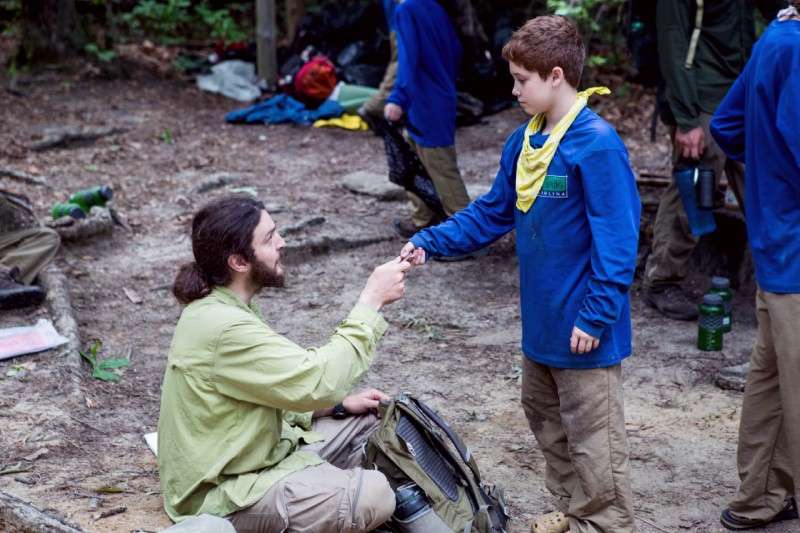
Here's How We Address Treating Oppositional Defiant Disorder:
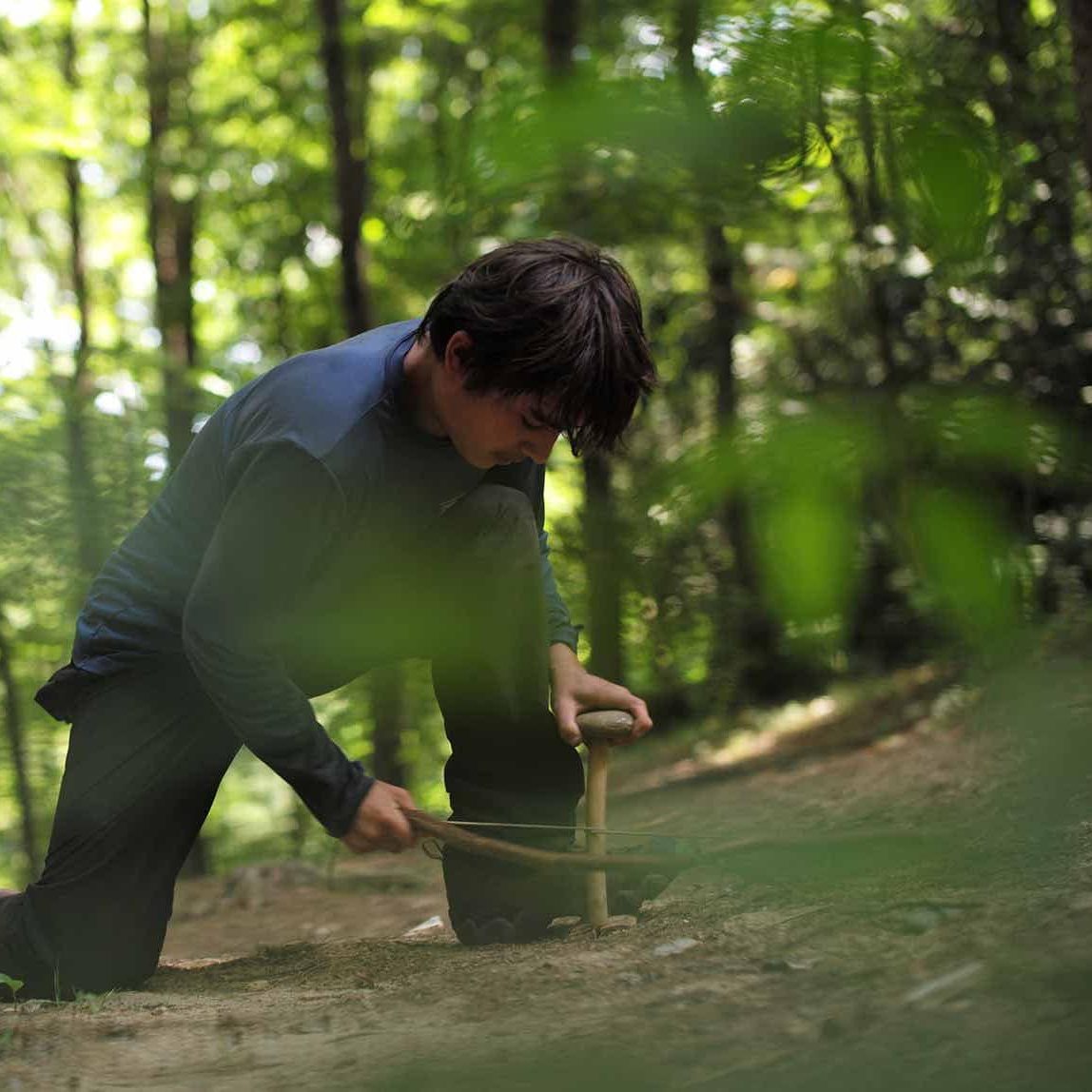
Wilderness Therapy and Nature's Healing Power
- Holistic Healing: Our serene and supportive wilderness environment offers a much-needed break from the stressors of daily life. It allows teenagers to reconnect with nature, themselves, and their peers, creating a foundation for emotional healing and growth.
- Adventure-based Experiences: Engaging in outdoor activities like hiking and camping fosters personal growth, self-esteem, and resilience. Through these experiences, students build confidence and learn to overcome the limitations caused by oppositional and aggressive behaviors.
- Therapeutic Wilderness Settings: Led by our experienced staff, we create a safe and structured environment for youth and teens to explore their oppositional triggers. Here, they learn healthy coping mechanisms and develop a sense of self-efficacy, empowering them to navigate their challenges effectively.
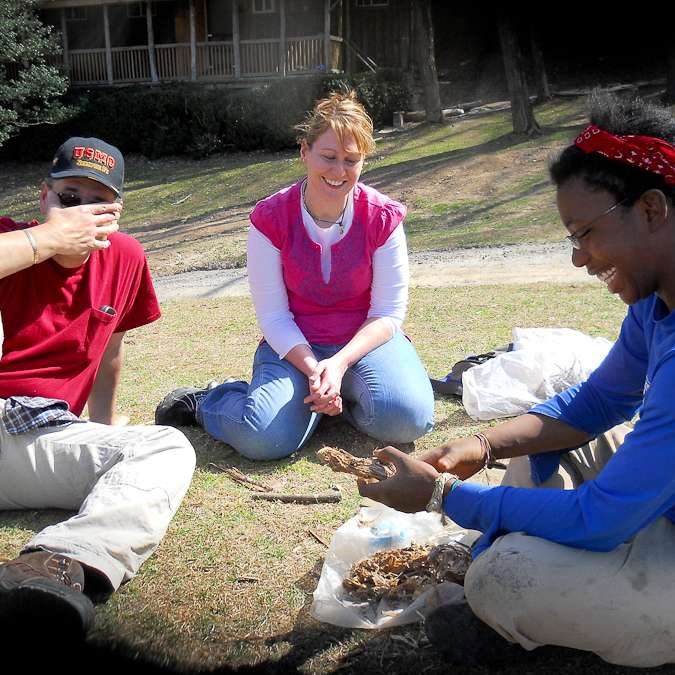
Individualized Treatment Plans To Treat ODD
- Comprehensive Assessment: Each youth and teen's specific needs and challenges are thoroughly evaluated. This enables us to create personalized treatment plans tailored to their unique circumstances and struggles with ODD.
- Therapeutic Interventions: Skilled therapists employ evidence-based therapeutic modalities, such as Cognitive-Behavioral Therapy (CBT) and Motivational Interviewing. These interventions address the underlying causes of ODD and equip youth and teens with effective coping strategies to manage oppositional behaviors.
- Supportive Group Dynamics: Engaging in group therapy sessions and communal living offers youth and teenagers a valuable support network. They build healthy relationships and learn from peers who share similar experiences, fostering a sense of belonging and understanding.
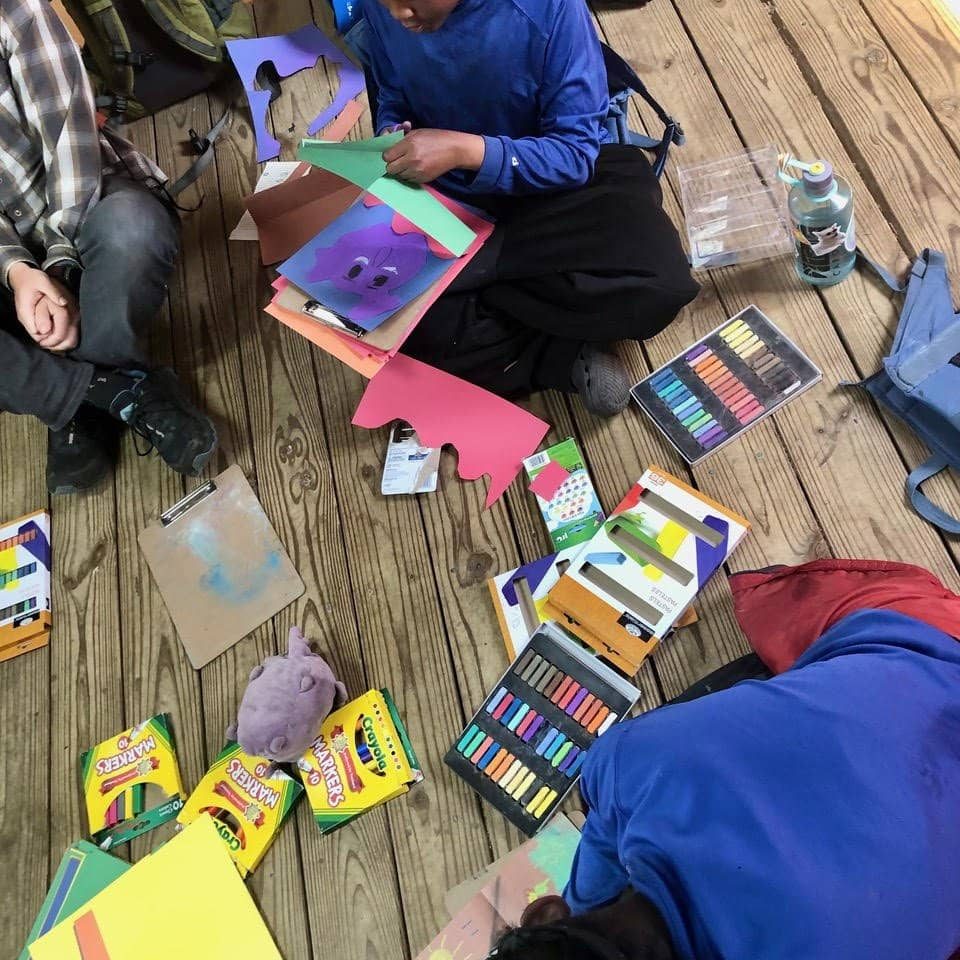
Creative Intervention Strategies for Oppositional Defiant Disorder
- Expressive Arts Therapy: Creative activities like art and outdoor experiences provide an outlet for self-expression and emotional healing. These therapies help youth and teens explore their oppositional behaviors from different perspectives, facilitating positive growth.
- Mindfulness and Relaxation Techniques: We teach mindfulness and relaxation techniques that empower students to manage stress, regulate emotions, and cultivate present-moment awareness. These skills help reduce oppositional behaviors and increase self-control.
- Life Skills Development: Youth and teens acquire essential life skills, such as problem-solving, effective communication, and healthy decision-making. These skills are instrumental in managing oppositional tendencies and successfully navigating life's challenges.
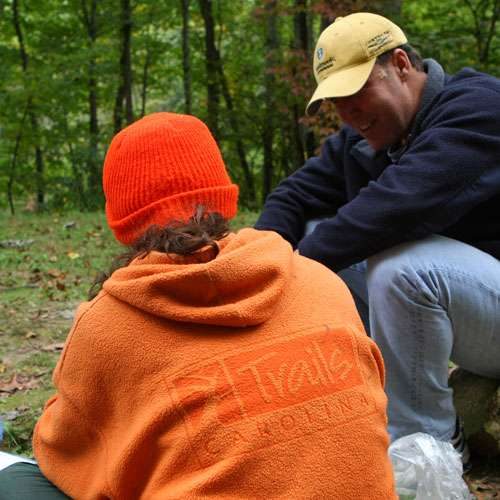
Family Programming and Parent Training for Defiant Behavior
- Parallel Family Programming: Our families are involved throughout the therapeutic process. We are actively supporting families throughout the student's journey by offering parent-specific therapy and guidance, which helps parents develop healthier communication patterns and understanding, contributing to the sustainable success of the student post-program.
- Parent Education and Workshops: We equip parents with essential tools, knowledge, and strategies to support their child's continued progress, providing them with the skills needed to maintain positive behavioral changes and a supportive environment at home after the program.
- Alumni Support: Our Alumni Support Programming ensures that students with ODD and their families have access to ongoing resources, mentoring, and encouragement even after completing the program, promoting a sense of belonging and accountability, which enhances their ability to sustain positive changes and achieve lasting success in their lives.
Through Trails Carolina's comprehensive wilderness therapy program, children and teens with Oppositional Defiant Disorder (ODD) experience transformative growth. Our approach helps them develop resilience, gain coping strategies, and learn to thrive in their daily lives by effectively managing oppositional behaviors. With the support of our experienced staff and evidence-based interventions, young individuals can embrace positive changes and build a brighter future.
What is Oppositional Defiant Disorder?
Oppositional Defiant Disorder (ODD) is a behavioral and mood disorder characterized by recurring patterns of disobedient, negative, and defiant behaviors directed toward parents, adult family members, and other authority figures. Children and teens with oppositional defiant disorder often display a persistent pattern of arguing, questioning rules, deliberately upsetting others, and showing anger or vindictiveness.
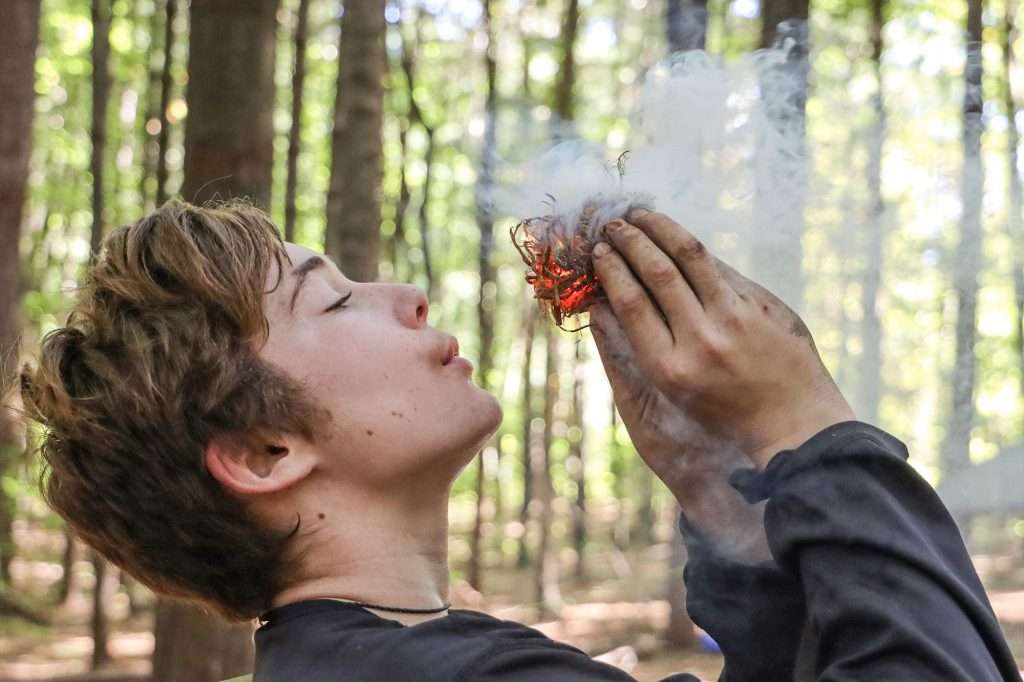
Symptoms of Oppositional Defiant Disorder in Kids and Teens
Some of the common symptoms of ODD to look out for in your child:
- Frequent arguing with adults or authority figures.
- Oppositional behavior, or refusal to comply with rules and requests.
- Deliberately annoying or provoking others.
- Blaming others for mistakes or misbehavior.
- Easily angered or annoyed by others.
- Temper outbursts, aggressive behaviors, and irritability.
- Defiant behavior and lack of respect for authority figures.
- Hostile attitude towards peers or authority figures.
- Persistent refusal to follow rules at home or school.
- Engaging in power struggles with caregivers or teachers.
It's important to note that not every child or teen who displays some of these behaviors will have Oppositional Defiant Disorder. A formal diagnosis should be made by a qualified mental health professional after a thorough evaluation of the individual's behaviors and symptoms.
Additionally, some of these behaviors may also be present in other mental health conditions, so it's essential to consider the full context when assessing and diagnosing ODD.
How is Oppositional Defiant Disorder Diagnosed?
This defiant behavior must be present for at least six months before a formal ODD diagnosis can be made, and it significantly impacts the child's social, academic, or home life. These behavioral issues are primarily expressed at home and towards people the individual is close to.
Diagnosing Oppositional Defiant Disorder (ODD) typically involves a comprehensive assessment conducted by a qualified mental health professional, such as a child psychologist, psychiatrist, or clinical social worker.
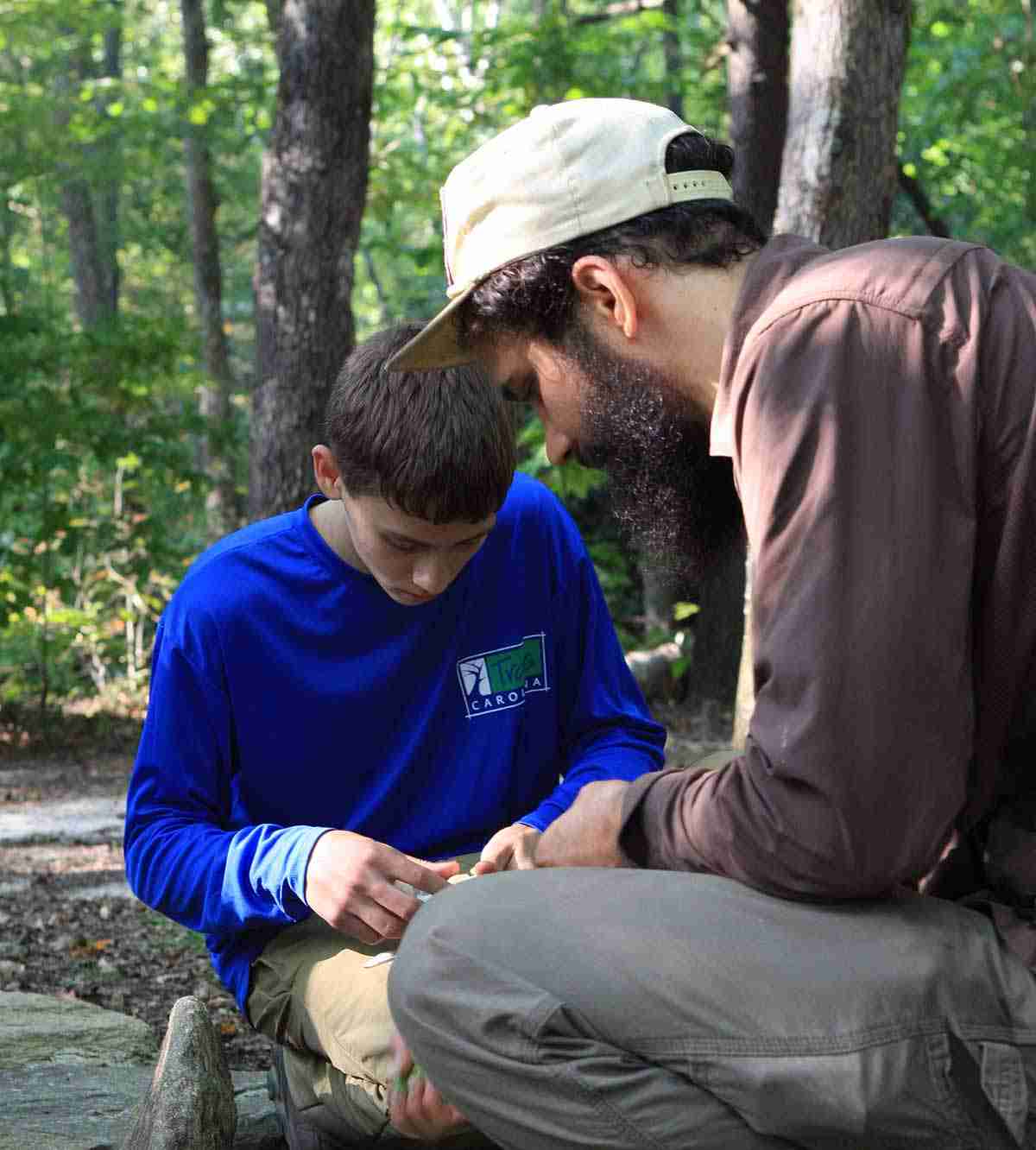
The process of diagnosis may include the following steps:
- Clinical Interview: The professional will meet with the child or adolescent and their parent or caregiver to gather detailed information about the child's behavior, emotions, and social interactions. They will ask about specific behavioral patterns and difficulties in different settings (e.g., home, school, and community).
- Parent and Teacher Questionnaires: The clinician may provide questionnaires to parents and teachers to gain insight into the child's behavior in various environments. These questionnaires can help identify consistent patterns of oppositional and defiant behavior.
- Observations: Direct observations of the child's behavior in different contexts (e.g., at home, school, or during play) may be conducted to gather more information about how the child interacts with others and responds to various situations.
- Diagnostic Criteria: The mental health professional will refer to the diagnostic criteria from the Diagnostic and Statistical Manual of Mental Disorders (DSM-5) published by the American Psychiatric Association when diagnosing ODD symptoms. The DSM-5 outlines specific criteria that must be met for a diagnosis of Oppositional Defiant Disorder.
- Exclusion of Other Conditions: The clinician will rule out other potential mental health conditions that may present with similar symptoms. These could include Conduct Disorder, Attention Deficit Hyperactivity Disorder (ADHD), anxiety disorders, or other mood disorders.
- Duration and Severity: At least four symptoms must be present for at least six months and be significantly impairing the child's ability to function in social, academic, or occupational settings.
Early diagnosis and intervention can help manage ODD symptoms and improve the child's overall well-being and functioning. This is crucial to provide effective treatment and support for adolescents and teens facing these challenges.
Gender Differences in Oppositional Defiant Disorder
Oppositional Defiant Disorder (ODD) can manifest differently in boys and girls, with varying patterns of behaviors and challenges. Understanding these gender differences is crucial for accurate diagnosis and tailored treatment approaches. Let's explore how ODD may present differently in boys and girls:
ODD in Boys:
Boys with ODD often exhibit more externalized behaviors, which are outwardly directed and easily observable. Some common characteristics include:
- Physical Aggression: Boys with ODD may resort to physical aggression, such as hitting, pushing, or engaging in fights when they feel frustrated or challenged.
- Defiance and Disobedience: They tend to display persistent defiance towards authority figures, such as parents, teachers, or caregivers, often challenging rules and directives.
- Temper Outbursts: Boys may have frequent and intense temper outbursts, displaying emotional dysregulation and difficulty managing anger.
- Acting Out: Acting out behaviors, like breaking rules, engaging in risky activities, or exhibiting impulsive behavior, are common in boys with ODD.
ODD in Girls:
On the other hand, girls with ODD may exhibit more internalized behaviors, which are not as easily observable but can still significantly impact their functioning and well-being. Some characteristic traits include:
- Verbal Aggression and Manipulation: Girls may display more verbal aggression, using hurtful language or manipulation to express their defiance.
- Relational Aggression: Rather than resorting to physical aggression, girls with ODD may engage in relational aggression, such as spreading rumors or excluding peers to assert control.
- Secretive and Sneaky Behaviors: Instead of openly defying authority, girls might display secretive and sneaky behaviors to avoid confrontation.
- Moodiness and Withdrawal: Girls may experience mood swings and periods of withdrawal, making it challenging for others to detect their emotional struggles.
Shared Characteristics:
While there are gender differences in the presentation of ODD, there are also common characteristics shared by both boys and girls with the disorder:
- Anger and Irritability: Both genders often experience intense anger and irritability, which contribute to their defiance and oppositional behaviors.
- Social Difficulties: Children of both sexes with ODD may encounter challenges in establishing and maintaining healthy relationships with peers and authority figures.
- Academic Impairment: ODD can hinder academic performance due to difficulties with authority, focus, and disruptive behaviors in the classroom.
- Family Conflicts: ODD can strain family relationships, leading to frequent conflicts and tension at home.
Understanding the unique ways in which ODD manifests in boys and girls is vital for early identification and appropriate intervention. A comprehensive evaluation by a qualified mental health professional is essential to provide accurate diagnosis and individualized treatment plans to support children and teenagers with ODD.
What Causes Oppositional Defiant Disorder in Kids and Teens?
Oppositional Defiant Disorder (ODD) in kids and teens is influenced by genetic, environmental, neurobiological, and social factors. Early identification and intervention are crucial to guide them towards healthier behaviors.
Our approach involves a comprehensive evaluation led by qualified mental health professionals who specialize in working with youth and adolescents with ODD. This evaluation helps us gain a deep understanding of each child or teen's unique challenges and strengths, enabling us to develop personalized treatment plans tailored to their specific needs.
While the exact causes of ODD are not fully understood, the following factors have been identified as potential contributors to the manifestation of the disorder in children and adolescents:

Genetics and Oppositional Defiant Disorder
Genetic factors can play a role in the development of ODD in kids and teens. ODD tends to run in families, indicating a possible hereditary component. Children with a family history of ODD or other disruptive behavior disorders may have an increased predisposition to developing the condition. Specific genetic variations might influence brain functioning and behavior, leading to oppositional and defiant behaviors.

Environmental Factors and Oppositional Defiant Disorder
The family environment and early life experiences significantly impact the development of ODD in kids and teens. Chaotic or inconsistent family environments, where rules and consequences are unclear or inconsistently applied, can contribute to the emergence of oppositional behaviors. Children who experience frequent conflicts or hostile interactions within the family may also be at higher risk of developing ODD. Additionally, exposure to adverse experiences or trauma during early childhood can contribute to the development of oppositional behaviors.

Neurobiological Factors and Oppositional Defiant Disorder
Neurobiological differences in brain functioning may contribute to the expression of ODD in kids and teens. Brain regions responsible for impulse control, emotional regulation, and decision-making might show atypical activity or connectivity in individuals with ODD. These neurobiological factors can impact a child's ability to manage their emotions and behaviors, leading to oppositional and defiant tendencies.

Learning and Social Factors and Oppositional Defiant Disorder
Learning difficulties and poor social skills can also influence the development of ODD in kids and teens. Children with learning disabilities or academic challenges may experience frustration and exhibit oppositional behaviors as a response to academic stress. Poor social skills can lead to difficulties in forming and maintaining positive relationships with peers and authority figures, contributing to defiance and interpersonal conflicts. Negative reinforcement from caregivers or peers may inadvertently reinforce oppositional behaviors, making them more persistent.
Addressing the Short and Long-term Effects of Adolescent and Teen ODD at trails Carolina
Untreated Oppositional Defiant Disorder in children and teens can lead to various short and long-term effects. At Trails Carolina, our wilderness therapy program is specifically designed to combat these effects and provide a transformative path forward for young individuals. Here's how each strategy helps address the short and long-term effects and decrease unwanted behaviors:
Short-term Effects:
Strained family relationships
- Family Involvement: Through family therapy, coaching, workshops, and more, we focus on rebuilding trust and strengthening family bonds. Addressing family dynamics helps improve communication and fosters a more supportive family environment.
- Parent Management Training: Ask our family coaches about Parent Management Training, which is an evidence-based intervention designed to teach parents effective behavior management techniques. Parents learn to set clear and consistent rules, provide appropriate consequences for behavior, and reinforce positive behaviors. Parent training helps parents maintain a structured and predictable environment at home, which is especially beneficial for children with ODD.
- Parent-Child Interaction Therapy: Ask our family coaches about Parent-Child Interaction Therapy, a specific form of family therapy that focuses on improving the relationship between the child and the parent. It is commonly used for young children with behavioral issues, including Oppositional Defiant Disorder.
Academic problems
- Accredited Academics: Our accredited academic program focuses on integrating appropriate behavior skills in a classroom setting. This helps improve classroom behavior for students with ODD during Trails and when they return home.
- Experiential Education: An immersive and hands-on learning approach that fosters personal growth, social and problem-solving skills development, and emotional regulation, effectively preventing school problems by promoting positive behavior and academic engagement.
Difficulties in peer relationships
- Social Skills Training: Our program focuses on improving communication and conflict resolution skills, empowering children and teens to build healthier relationships with peers and authority figures.
- Peer Support Groups: Same-gender and age-based peer groups create an understanding environment where students with ODD can connect with their peers, develop empathy, and practice effective communication, thus improving their social skills and interpersonal relationships.
- Teamwork Activities: Teamwork activities encourage students with ODD to collaborate, cooperate, and rely on each other, fostering prosocial behaviors and teaching valuable communication and problem-solving skills for positive interactions.
Potential involvement in delinquent behavior
- Adventure-based experiences: Engaging in challenging outdoor activities promotes teamwork and positive peer interactions, diverting teens' focus towards constructive behaviors. These experiences also promote self-confidence and situational awareness, which help students battle peer pressure, make positive choices, identify problem behavior, and avoid deviant peer groups.
Long-term Effects:
Increased risk of developing conduct disorder or other behavioral issues
- Therapeutic Intervention: Our experienced therapists employ evidence-based modalities to address underlying causes of ODD and equip youth and teens with coping strategies, reducing the risk of escalating behavioral issues.
Substance abuse problems
- Coping Strategies: By teaching practical coping techniques and emotional regulation, we empower students to manage stress and emotions without resorting to substance use as a coping mechanism.
- Holistic Healing: Immersed in nature, teens experience personal growth and learn responsible decision-making, decreasing the likelihood of engaging in illegal activities.
Limited educational and career opportunities
- Life Skills Development: Students acquire essential life skills, such as problem-solving skills and effective communication, which positively impact their ability to navigate challenges and access educational and career opportunities.
At Trails Carolina, our holistic approach addresses both the short and long-term effects of ODD. By combining the healing power of nature with therapeutic interventions and skill-building, we guide teens towards positive change, healthier relationships, and a brighter future.
Get started today
Contact us today to learn how Trails Carolina can help your family
Trails saved my daughter’s life. Amanda is an amazing human and a brilliant therapist. I am so grateful to her, Science Steve, and the other wonderful people who could reach my daughter at a time when I could not.
Margot Lowman August 2022
Great life changing experience for our son. After becoming addicted to gaming during covid he was very depressed. At Trails he experienced the wilderness, Science Steve, learning survival skills and top notch therapy and support etc… I highly recommend! This gave our son and our family a renewed family bond full of love and excitement about his bright future.
Winnifred Wilson July 2022
Outstanding clinical work and superb staff! There’s a great culture at this company and it shows with how they engage with families/clients.
Kristin Brace June 2022
